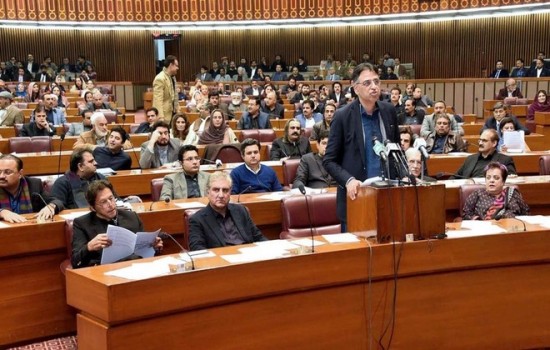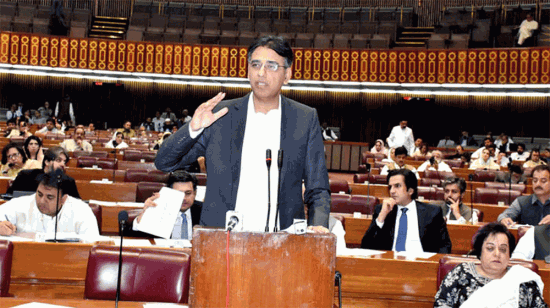The federal minister of PTI government, Asad Umar presented the second mini budget in the national assembly on 23 January 2019. While presenting the mini budget at the national assembly, the finance minister said that it is more than a reforms bill than the finance bill and the government wants to facilitates the poor by reducing pressure from the poor and the government has increased the taxation on the rich class of people. Here are the Salient Features of Mini Budget 2019:
Tax Exemptions
- The finance minister has made the announcement to eliminate the withholding tax on the banking transactions for the filers in order to appreciate them on paying the taxes.
- The products of the renewable energy will be exempted from the sales tax and custom duty for five years.
- The withholding tax, which was import on trading in the stock exchange, will be removed.
- The duty, which was imposed on the import of the newsprint paper, has been eliminated.
- The government eliminated the tax on the bids for sports franchises till then they reach to the profit.
- The special economic zones have the machinery, which is declared exempted from all taxes.
- The new industries will be exempted from income taxes for 5 years.
- The super tax being imposed on the non-banking companies, will be eliminated from 01 July.
Reduction of Taxes
- The government has suggested the reduction of 20% income taxes from loans to SME and the agriculture sector.
- The government has reduced the taxes on the small marriage halls to Rs.5000/-, which was previously Rs.20,000/-.
- The import duty on the raw material was reduced.
- The minister suggested to continue 1 pc per annum reduction in the corporate income tax.
- The non filers will be allowed to buy the houses up to Rs. 5 million after paying the heavy taxes.
Auto Sector
- The new finance bill shows that the non filers will buy the vehicles of 1300 cc engine capacity after making payment of heavy taxes. The non filers will be allowed to buy the vehicles that have been assembled or manufactured locally.
- The tax over 1800 cc vehicles will be increased.
- The 5% decline on the duty announced on the diesel engines for the agricultural purposes.
Telecom & Mobile Phones
- The government has reduced the taxes on the low priced phones. The expensive mobile phones will be taxed at the same rate. The scheme has been simplified into three taxes and slabs.
- You will read the taxes on the imported phones:
- Custom levy on the imported phones:
- No Levy on imported phones having value under $100.
- Rs. 500 levy on imported mobile phones, which have worth $100 to $200.
- Rs. 1,500 levy on imported mobile phones, which have value $200 to $350.
- Rs. 3,500 levy on imported mobile phones, having worth $350 to $500.
- Rs. 7,000 levy on imported mobile phones have value more than $500.
- The slabbed tax is also imposed on the imported mobile phones:
- Rs. 150 Customs Duty on imported phones having value under $30.
- Rs. 1,470 Customs Duty on imported mobile phones having value $30 to $100.
- Rs. 1,870 Customs Duty on imported mobile phones having worth $100 to $200.
- Rs. 1,930 Customs Duty on imported mobile phones, which have worth $200 to $350.
- Rs. 6,000 Customs Duty on imported mobile phones, which have value $350 to $500.
- Rs. 10,300 Customs Duty on imported mobile phones, which have worth more than $500.
- Rs. 70 on imported phones, which have value under $30.
- Rs. 730 on imported mobile phones, having worth $30 to $100.
- Rs. 930 on imported mobile phones, which have worth $100 to $200.
- Rs. 970 on imported mobile phones, having value $200 to $350.
- Rs. 3,000 on imported mobile phones, which have worth $350 to $500.
- Rs. 5,200 on imported mobile phones, which have worth more than $500.
Miscellaneous
- The government will give the easy loans to the low income sector for the housing and the revolving fund of Rs.5 billion, which has been introduced for this scheme.
- There is the promissory notes, which are provided for the exporters and they will allow them to take the loans from banks on the base of these notes.




